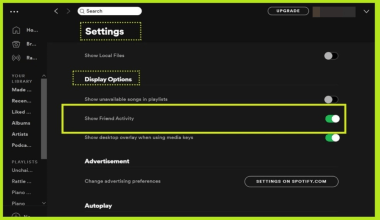Have you ever wondered, “gana kaise likhe?” Writing songs is like sharing your heart with the world. It’s an art where you can express your feelings, stories, and dreams through words and music. The best part? You don’t need to be a professional to write a song. Anyone with a little creativity and effort can do it!
In this blog, we’ll walk you through the entire process of writing a song in the simplest way possible. Whether you are new to songwriting or want to refine your skills, this step-by-step guide is here to help.
1. What is Songwriting?
Songwriting is the process of creating a song by combining lyrics and melodies. It’s about transforming emotions into words and giving them a tune that people can connect with. Songs are a universal language—they bring people together and make them feel understood.(gana kaise likhe)
Think about the songs you love. Why do they stick with you? It’s often because they tell a story or evoke emotions that feel personal. That’s exactly what you can do too!
2. Why Should You Write Songs?
Writing songs is not just for musicians or singers. It’s a skill that anyone can develop. Here’s why you should try songwriting:
- Self-Expression: Share your thoughts, feelings, and stories with others.
- Stress Relief: Writing songs can be therapeutic and calming.
- Build Confidence: Sharing your work can boost your self-esteem.
- Create a Legacy: Your songs will remain as a part of you forever.
- Career Opportunities: You can earn money and recognition by sharing your music on platforms like Spotify(gana kaise likhe), YouTube, or Deliver My Tune.
3. Steps to Start Writing a Song
Songwriting can seem overwhelming at first. But don’t worry—we’ve broken it down into simple steps for you.
Step 1: Find Your Inspiration
The first question you may have is, “Where do I start?” The answer is: find your inspiration.
Inspiration can come from:
- Personal experiences: Write about your happy memories, struggles, or dreams.
- Stories: Observe the world around you. (gana kaise likhe)A story you hear or see might spark an idea.
- Nature: A walk in the park or watching the rain can ignite your creativity.
- Emotions: Love, sadness, hope, or even anger can fuel your songwriting.
Step 2: Choose a Theme
Before you start writing, decide what your song will be about. Do you want to write a love song, a motivational anthem, or a fun party track? Having a theme makes it easier to focus and write.
Step 3: Write the Lyrics
Lyrics are the words of your song. Here’s how to make your lyrics stand out:
- Keep it simple: Use everyday language that people can relate to.
- Use rhymes: Rhyming words make your song catchy. For example:
- “Pyaar ka ehsaas, jo kabhi na ho udaas.”
- Tell a story: Imagine you’re talking to a friend. Write your song like a story you’re sharing with them.
- Repeat key phrases: Repetition makes your song memorable.
Step 4: Create a Melody
Once you have your lyrics, you’ll need a melody—a tune for your song. Don’t worry if you’re not a musician. Here are simple ways to create a melody:
- Hum your words: Sing your lyrics in different ways to find a tune that feels right.
- Experiment with instruments: Use a guitar, keyboard, or even an app to try different melodies.
- Record your ideas: Use your phone to record melodies so you don’t forget them.
Step 5: Add Rhythm
The rhythm gives life to your song. It’s the beat that makes people tap their feet or nod their heads.(gana kaise likhe) Try clapping or tapping your feet to find a natural rhythm that matches your melody.
4. Tips for Beginners
If you’re new to songwriting, these tips will make things easier:
- Start Small: Write short songs first. Focus on one verse and a chorus.
- Don’t Overthink: Your first song doesn’t have to be perfect. Just enjoy the process.
- Listen to Music: Study songs you love. Pay attention to their lyrics, melodies, and structure.
- Ask for Feedback: Share your song with friends or family and ask for their thoughts.
5. Overcoming Common Challenges
Sometimes, you might feel stuck or unsure. Here’s how to tackle common problems:
Challenge 1: Writer’s Block
- Take a break and come back later.
- Write freely without worrying about perfection.
- Listen to music for inspiration.
Challenge 2: Feeling Unoriginal
- Combine different ideas to create something unique.
- Add personal touches to make the song yours.
6. How to Structure Your Song
Most songs have a simple structure. Here’s a basic format:
- Verse 1: Introduce the theme of your song.
- Chorus: The catchy part that repeats.
- Verse 2: Continue the story.
- Chorus: Repeat the catchy part.
- Bridge: Add a twist or new perspective.
- Chorus: End with the main message.
7. Polishing Your Song
Once your song is ready, it’s time to refine it:
- Edit the Lyrics: Check for spelling, grammar, and flow.
- Improve the Melody: Make sure the tune matches the mood of the lyrics.
- Practice Singing: Sing your song several times to perfect it.(gana kaise likhe)
8. Sharing Your Song with the World
The final step is sharing your song. Here’s how you can do it:
- Record a Demo: Use basic tools to record your song.
- Upload Online: Platforms like Spotify, YouTube, and Deliver My Tune make it easy to share your music with a global audience.
- Get Feedback: Share your song with friends, family, or online communities.
9. FAQs About Songwriting
Q1: Do I need to know music theory to write songs?
No, you don’t need formal training. Passion and practice are more important.
Q2: Can I write songs in any language?
Yes! Write in the language you’re most comfortable with.(gana kaise likhe)
Q3: How long does it take to write a song?
It depends on you. Some songs take hours, while others take days or weeks.
Conclusion
Writing songs is a beautiful way to express yourself and connect with others. With this guide on gana kaise likhe, you have everything you need to start your songwriting journey. Remember, there’s no right or wrong way to write a song—just let your heart guide you.
So, grab your notebook, hum a tune, and let the magic happen. Who knows? Your song might be the next big hit!
Related Articles:
For further reading, explore these related articles:
- Snapchat Music: Making Stories Sound Better
- Promo Cards on Spotify: A Game Changer for Artists
- Understanding ISRC Codes and Their Importance in Tracking and Distributing Your Music
For additional resources on music marketing and distribution, visit Deliver My Tune.






